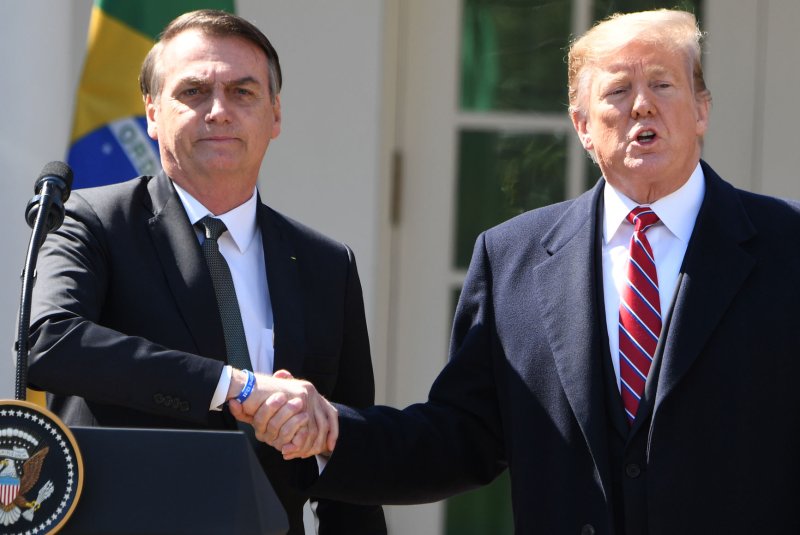June 1 (UPI) -- The White House announced it will send Brazil 2 million doses of hydroxychloroquine in its fight against the coronavirus.
In a joint statement Sunday, the two nations said the drug used to treat lupus and malaria will be administered in Brazil to those infected with COVID-19 and to healthcare professionals as a prophylactic. A thousand ventilators will also be sent.
















